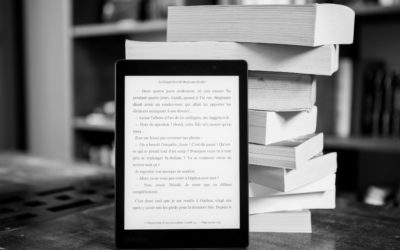Our Blog
TIPS & GUIDELINES TO HELP YOU IMPROVE YOUR WRITTEN ENGLISH
Writing a Query or Covering Letter to a Literary Agent
The query letter is a one-page note asking a literary agent if they’re interested in representing your book ‒ and getting them excited about it. Securing an agent for your manuscript is the first step in your publishing journey if you’re going along the traditional publishing route. This means your query letter is a significant document.
Guidelines for Writing a Memoir People want to Read
Although based on actual events, memoir is more like fiction than non-fiction. To be publishable, a memoir must make use of fiction techniques that pull the reader along and elicit an emotional response. Because memoirs are so personal, you need a fresh, impartial perspective to help you create a stronger narrative. That’s where an editor plays a role.
What does Tone mean in your Writing?
Tone is an aspect of writing style that refers to the author’s attitude or approach toward the reader and the subject matter or central theme in the literary work. Establishing an appropriate tone in your writing is essential because it helps you show readers what your work is trying to accomplish, and what attitude the work takes toward its own subject matter.
11 Tips for Clear and Concise Writing
Concise writing helps you and your readers do more with less and stay focused on the topic; it delivers greater impact. These tips help you communicate your ideas more effectively and keep your readers’ attention longer. Improve clarity and comprehension correcting wordiness in your sentences and paragraphs.
17 Online Resources to Help you Improve your English
Learning English grammar, punctuation, spelling and vocabulary is not an easy task. Whether you want to improve your English so you can write more effectively, converse with greater clarity and accuracy, or read with deeper comprehension, here are a few websites you may wish to visit.
Does your Novel need an Epilogue?
In fiction writing, an epilogue functions as a supplemental, but separate, part of the main story. It appears after the main narrative, separate from the final chapter. The epilogue should enhance a reader’s understanding of what has transpired and provide a strong resolution. It should not be used simply to wrap up any loose ends, something which should be done in the main narrative.
The Oft-Abused Prologue: When & How to Write it
The purpose of a prologue is to introduce important information that has a connection to the main story, but whose relevance is not immediately obvious. The key is to create a balance between revealing information and maintaining, even stimulating, interest.
Write an Effective Blurb for a Non-Fiction Book
A strong blurb is one of the most important and powerful selling tools for your book — it serves as your sales pitch. Blurbs for non-fiction books are very different to those for fiction, in that they convey a message and the benefits the reader will receive from reading the book.
Using Persuasive Writing in Everyday Business
Persuasive writing uses words to convince the reader to listen to what you have to say and to act in a certain way ‒ it has to sway your reader intellectually and emotionally. Persuading isn’t about manipulation or pushy sales tactics; it’s about getting buy-in for your offer.
Organising your Book into Chapters & Sections
The ‘anatomy’ of your novel, which includes its technical and structural elements, is important and should not be neglected. The reader’s engagement is affected by your novel’s division into chapters and sections (aka scenes).
Eliminate Clutter and Improve your Writing
Clutter-free writing is clear writing. Words and phrases should be deliberately selected to be fit for purpose, and any that do not enhance the meaning or context of a written piece should be culled or replaced.
Developing Timelines for your Novel
Your novel’s outline and timeline work together to deliver pacing, clarity, consistency and continuity ‒ all of which are required to keep your reader engaged rather than confused.
Know your Brackets & How to Use Them
Written English has four types of brackets, each with their own usage rules. Improve your written English by using them correctly.
Colons: How to Use Them Correctly
Learn to use the colon and semicolon correctly to improve your writing. They have very different uses.
Voice, Perspective & Tone in your Writing
Your voice includes your style of writing, your perspective and your tone. It’s your personality expressed in writing, while tone reflects your attitude. Your voice is what makes your writing ‘sound’ authentic to your reader and impacts the way they experience your story.
Beware the Dangling Participle
Dangling participles sound more painful than they actually are. A dangling participle is simply a type of dangling modifier, and a participle is a type of verb ending in -ing (and sometimes -ed) which must be used with care.
Know your Hyphens from your Dashes
There are three basic types of ‘dashes’; they have different uses and cannot be used interchangeably. Here’s how to tell the difference and use each correctly to improve your written English.
Tips for writing a Document Summary
It is possible to summarise something that one has read, such as a report; or something that one has heard, such as a lecture; or something that one has seen and heard, such as a movie. In this article, however, I will be discussing writing a document summary. Main...
How to use the Apostrophe correctly
The apostrophe (’) is one of the hardest working punctuation marks in the English language. It’s also one of the most misused. Apostrophes can be confusing, but they aren’t difficult to master if you can remember a few rules.





























